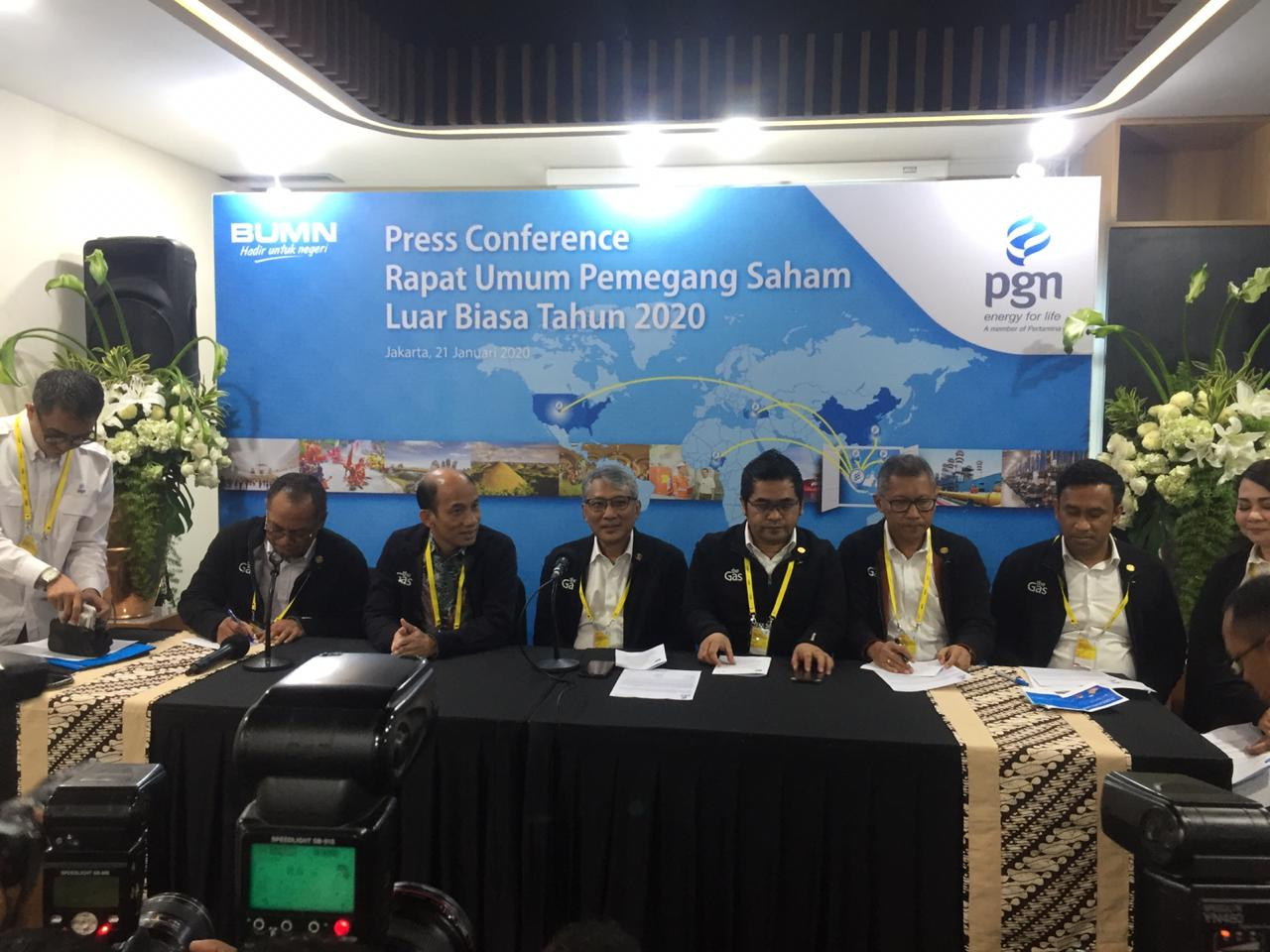Popular Reads
Top Results
Can't find what you're looking for?
View all search resultsPopular Reads
Top Results
Can't find what you're looking for?
View all search resultsPGN to lower gas prices ‘hopefully by April’
Indonesia’s largest gas distributor aims to lower industrial gas prices to US$6 per million British thermal unit (mmbtu) by April, from around $8 mmbtu today – a price point that has been considered as burdensome for manufacturing industries.
Change text size
Gift Premium Articles
to Anyone
I
ndonesia’s largest gas distributor aims to lower industrial gas prices to US$6 per million British thermal unit (mmbtu) by April, from around $8 mmbtu today – a price point that has been considered burdensome for manufacturing industries.
PGN president director Gigih Prakoso said on Monday that the company was engaged in talks with gas companies and the government to meet the $6 price mark, as stipulated by Presidential Regulation (Perpres) No. 40/2016. The regulation promises cheap gas for the rubber gloves, ceramics, glass, steel, fertilizer, petrochemical and oleochemical industries, which consume 70 percent of Indonesia’s industrial gas.
“Hopefully, with all these discussions, there will be a way out such that on April 1 we can implement Perpres No. 40/2016,” he told lawmakers in Jakarta.
Four years have passed since the regulation’s issuance yet gas prices still hover around $8 per mmbtu, hurting manufacturing industry growth, at a time when Indonesia is trying to break free from the middle-income trap.
In response, President Joko “Jokowi” Widodo announced last month three possible solutions to reduce prices: domestic market obligation (DMO), fiscal incentive or import relaxation. Jokowi is set to make a decision on the matter by March.
PGN has made clear that it favored the DMO option but Gigih, speaking on Monday, said the company also wanted tax cuts to reduce operational costs. Specifically, PGN wanted the government to eliminate value added taxes (PPN) for when the company purchased gas and do away with a gas distribution tax “that we will use to build infrastructure instead.”
PGN expects the slashing of the two taxes to reduce transmission and distribution costs, which respectively comprise 13 percent and 17 percent of its final selling price. The remaining 70 percent comes from purchasing the gas, a price that the government does not want to cut as it would hurt oil and gas producers.










